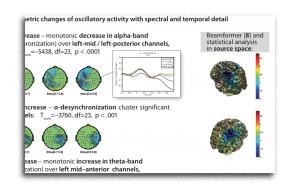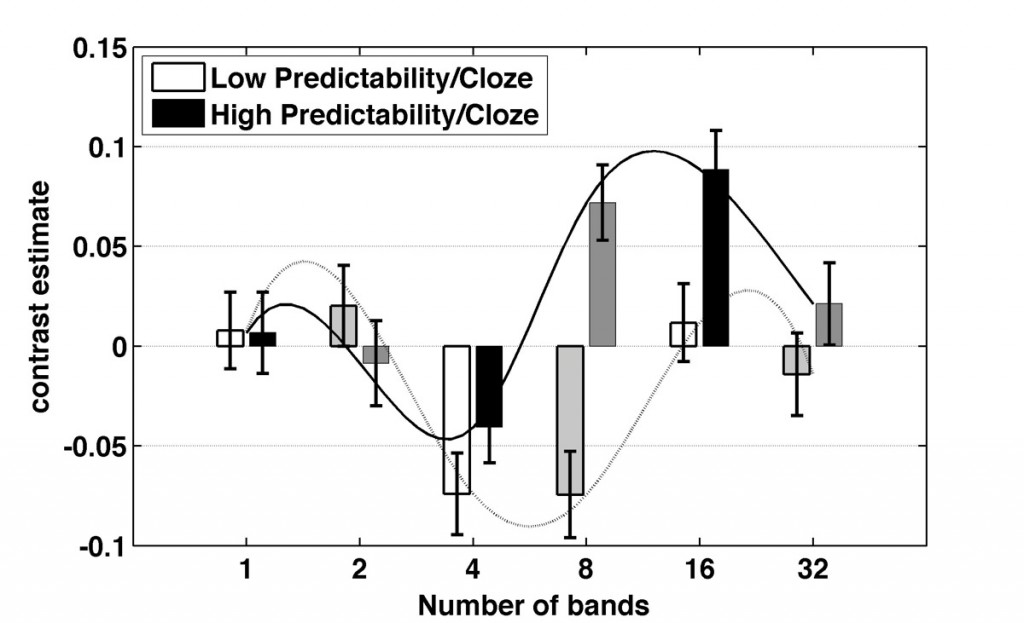Dear followers of the slowly emerging Obleser lab,
I am glad to present to you a new paper that was published last week:
by Jonas Obleser, Amber Leaver, John VanMeter, and Josef P. Rauschecker, in Frontiers in Psychology. It was submitted to the new section of Auditory Cognitive Neuroscience and wil be one of the first papers to appear in this section.
The paper present evidence from a small-voxel 3T study we scanned in Georgetown a few years ago that
- naturally coarticulated syllables like /de:/ or /gu:/ contain enough information for a machine learning algorithm to tell vowel categories (front vs back) from each other, and also stop consonant categories (/d/ vs /g/) – across participants!
- with a surprisingly sparse overlap across subareas of the superior temporal cortex, however and
- data from the left anterior region of interest (defined as left and anterior of a probabilistic primary auditory cortex definition sensu Rademacher et al., 2001) appears particularly “geared” towards these speech–from-speech classifications.
The paper was edited by Micah Murray and received very constructive reviews from Elia Formisano and Lee Miller (a feature of Frontiers journals is to disclose the peer reviewers after acceptance; nice feature, I think.)
The final pdf is available online now, and it seems that the Pubmed listings for the Frontiers in psychology journal are about to happen very soon.
References
- Obleser J, Leaver AM, Vanmeter J, Rauschecker JP. Segregation of vowels and consonants in human auditory cortex: evidence for distributed hierarchical organization. Front Psychol. 2010 Dec 24;1:232. PMID: 21738513. [Open with Read]


